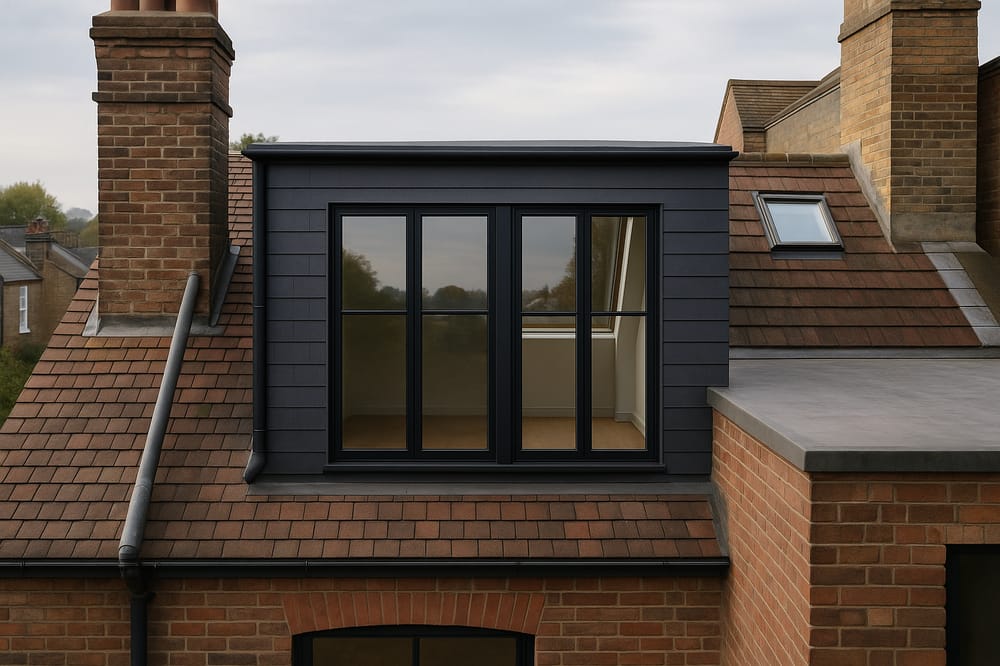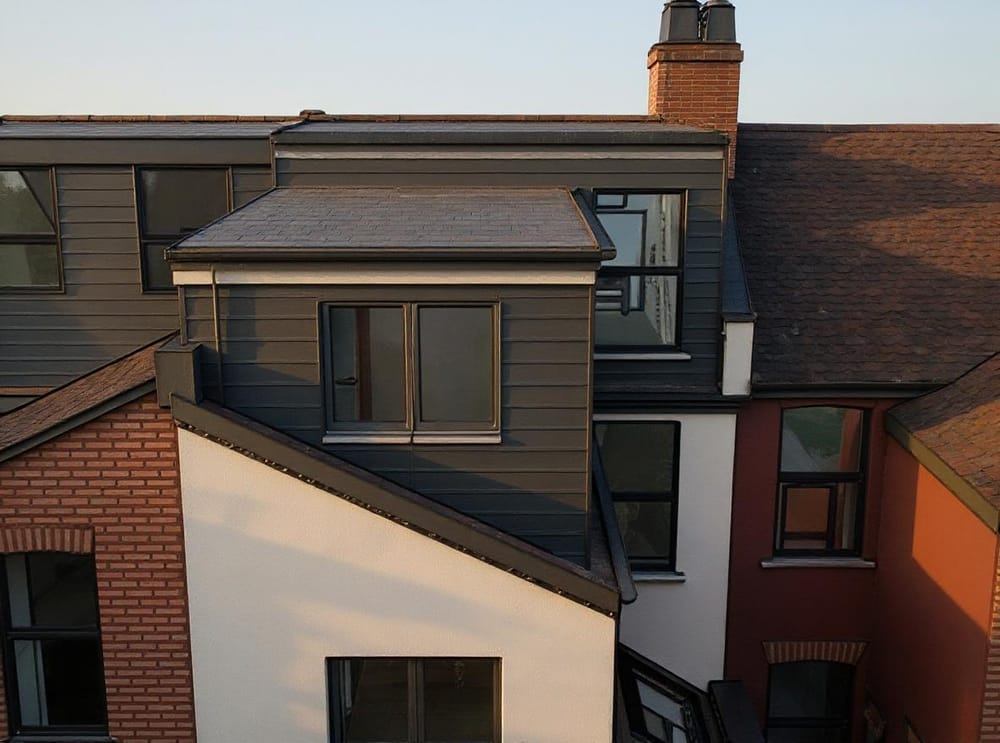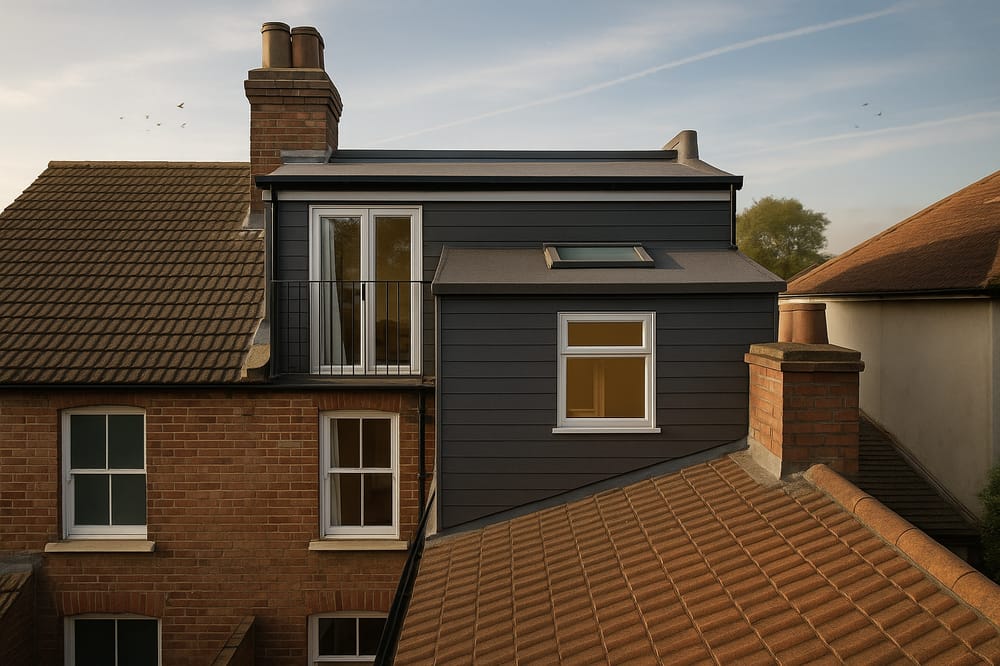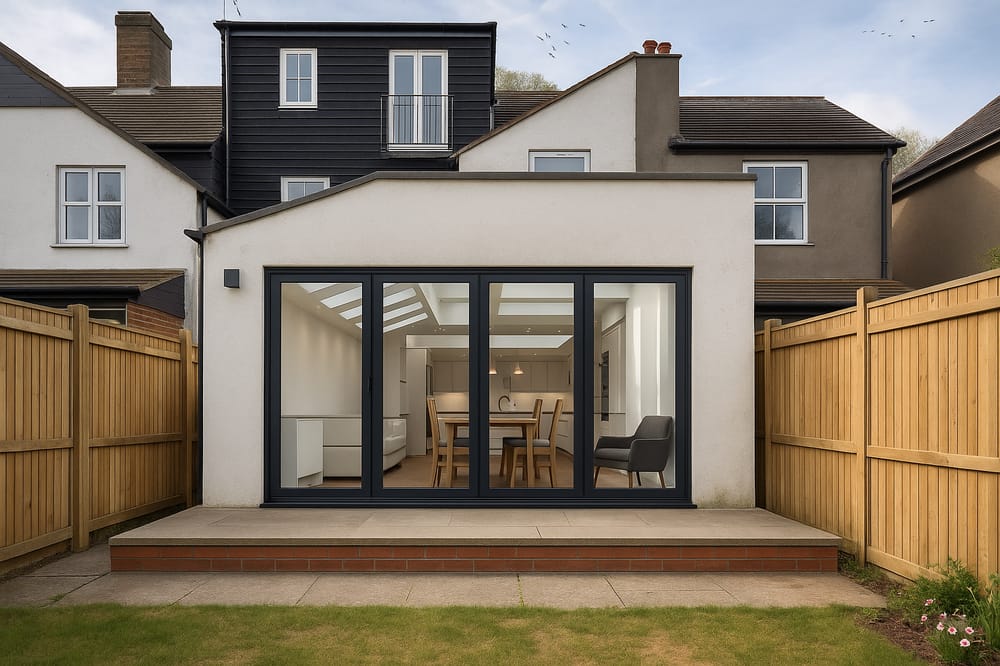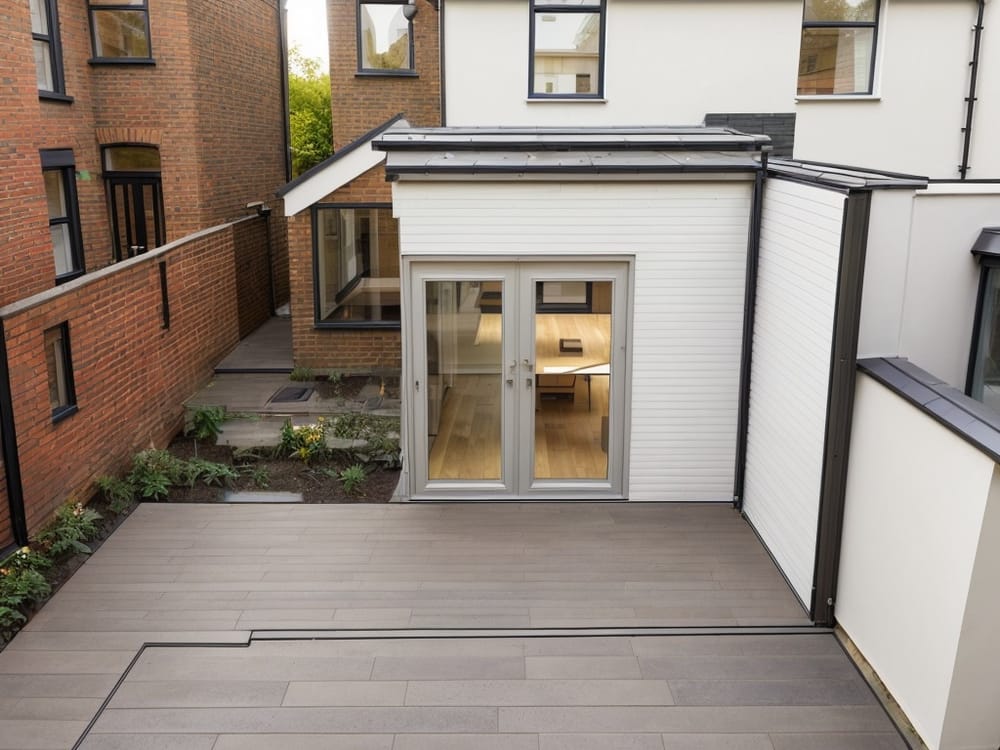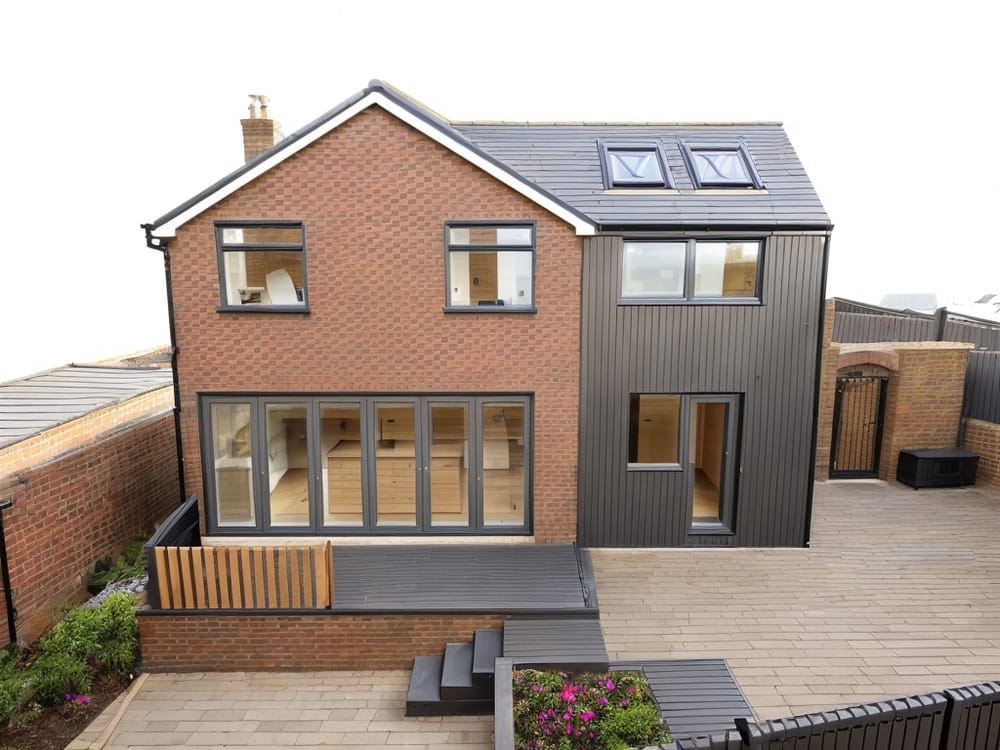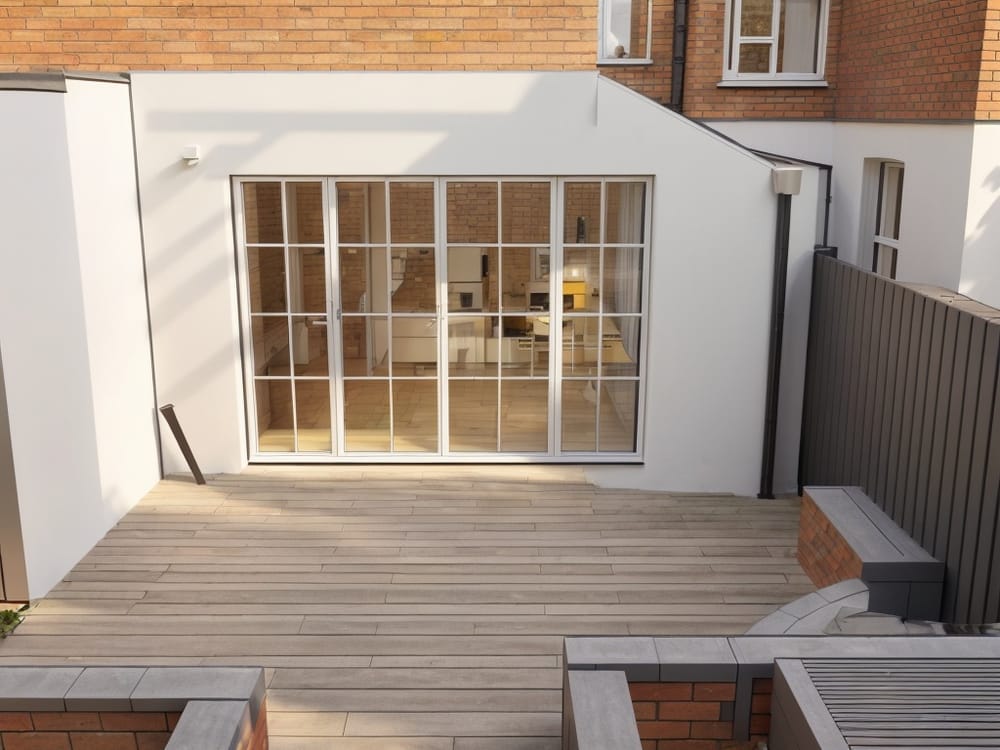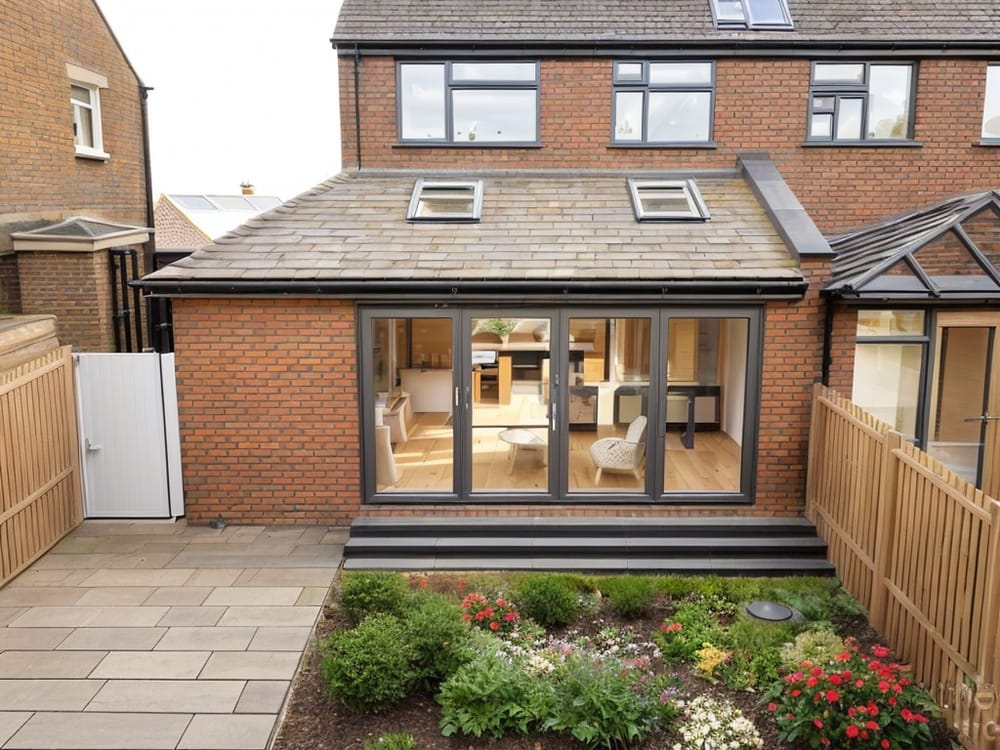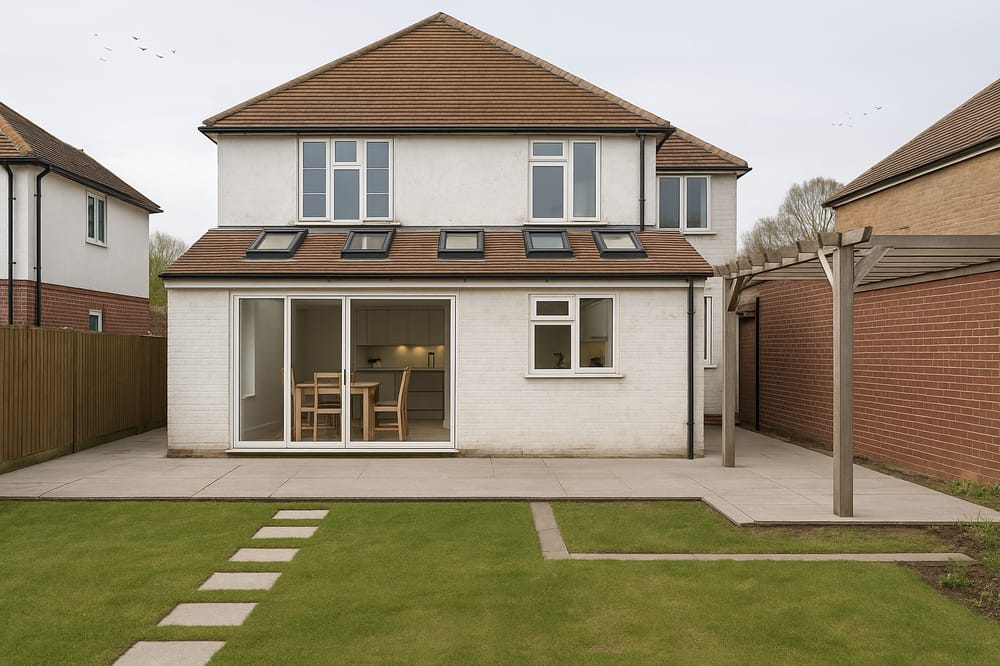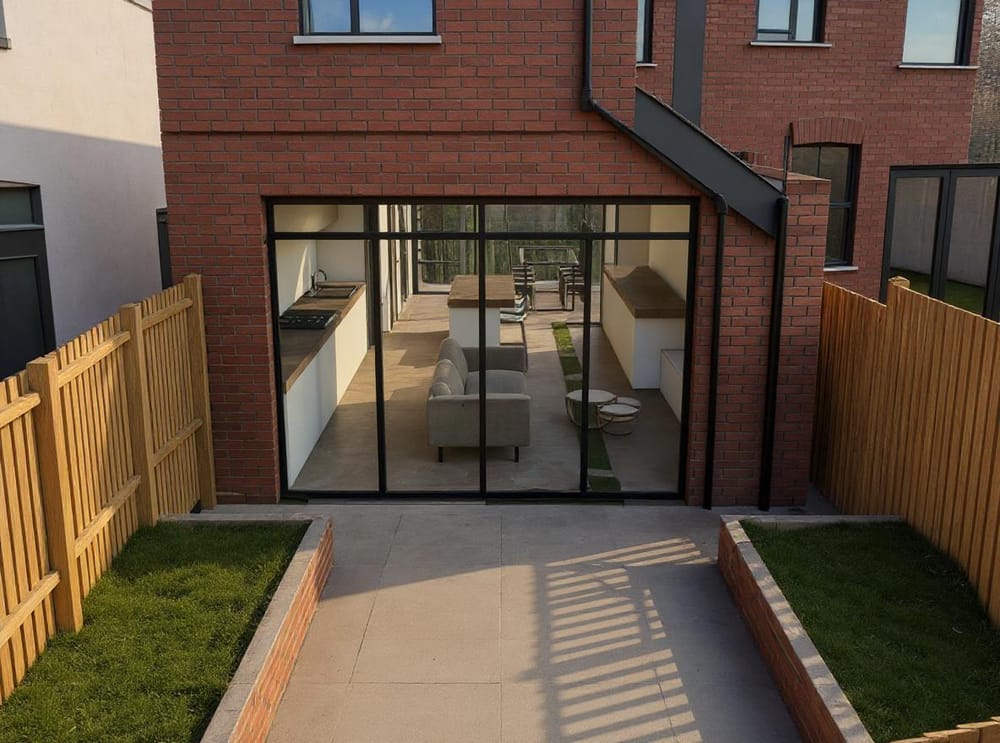When it comes to how relaxed we feel at home, creating a calm aesthetic is one of the key elements we have some control over. If you’re seeking a more peaceful atmosphere at home but you’re not sure where to begin, allow our 6 top tips for creating a calm aesthetic to be your guide.
1. A calm aesthetic starts with decluttering
A cluttered space can feel overwhelming and chaotic, so it's important to keep your home organised and free of unnecessary items. Take time to declutter regularly, and get rid of anything you no longer need or use. For any items that need to be kept, there are two great approaches you can take towards keeping your space mess-free: keep bits and bobs tucked away in furniture with storage or create an eye-catching feature out of your storage solution.
Here are just a couple of examples from the Resi portfolio that demonstrate how decluttering, partnered with smart storage, can create a calm aesthetic.
The homeowners of this charming Hackney abode have opted for extra, pull-out storage drawers tucked under a window seat to optimise their space:
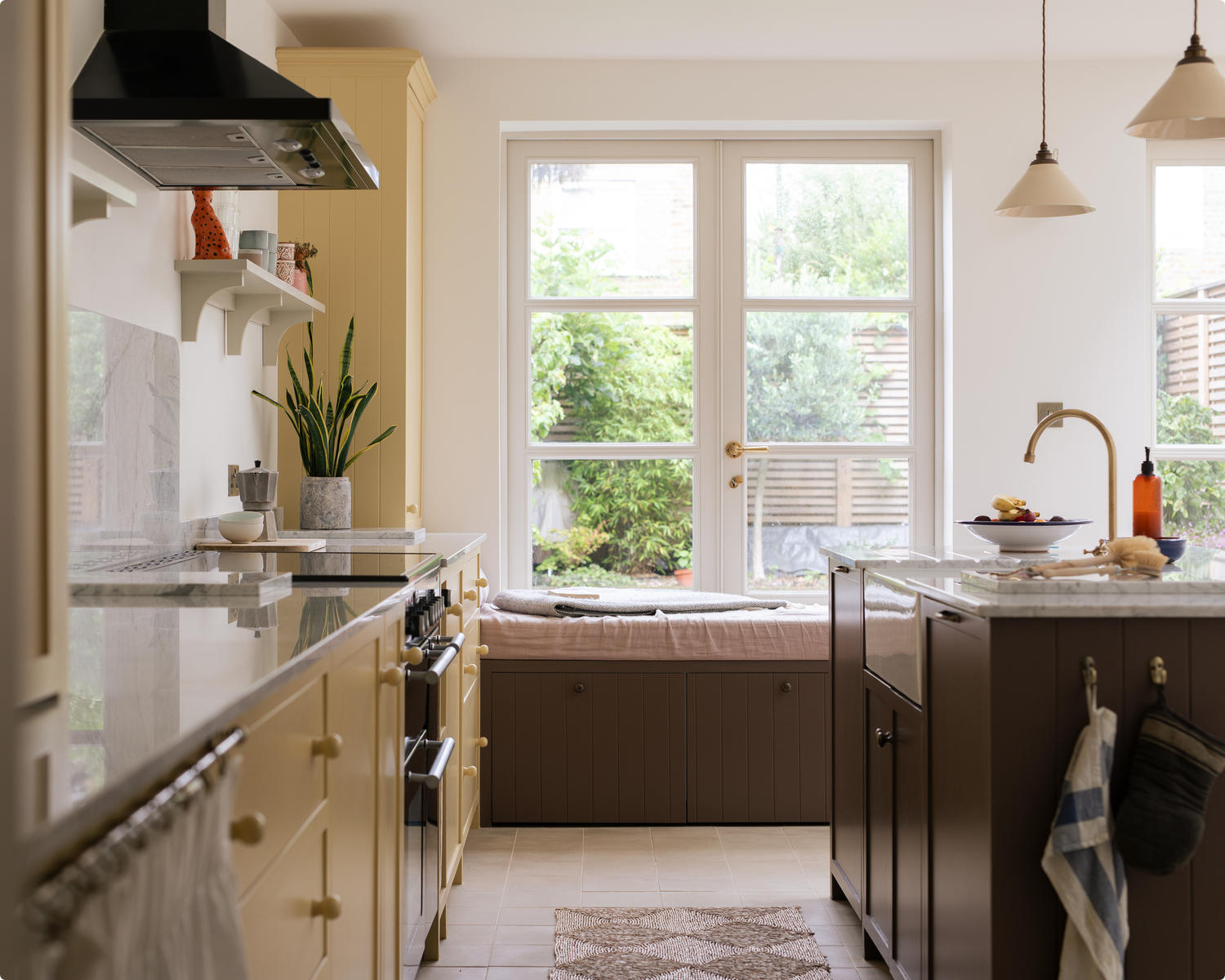 © Matt Gamble
© Matt Gamble
At this completed project in Hounslow, the homeowners have decluttered to make room for this beautiful, spacious entryway. They’ve also created features of their valued possessions like their guitars and ornaments that stand out and contribute to a calm aesthetic:
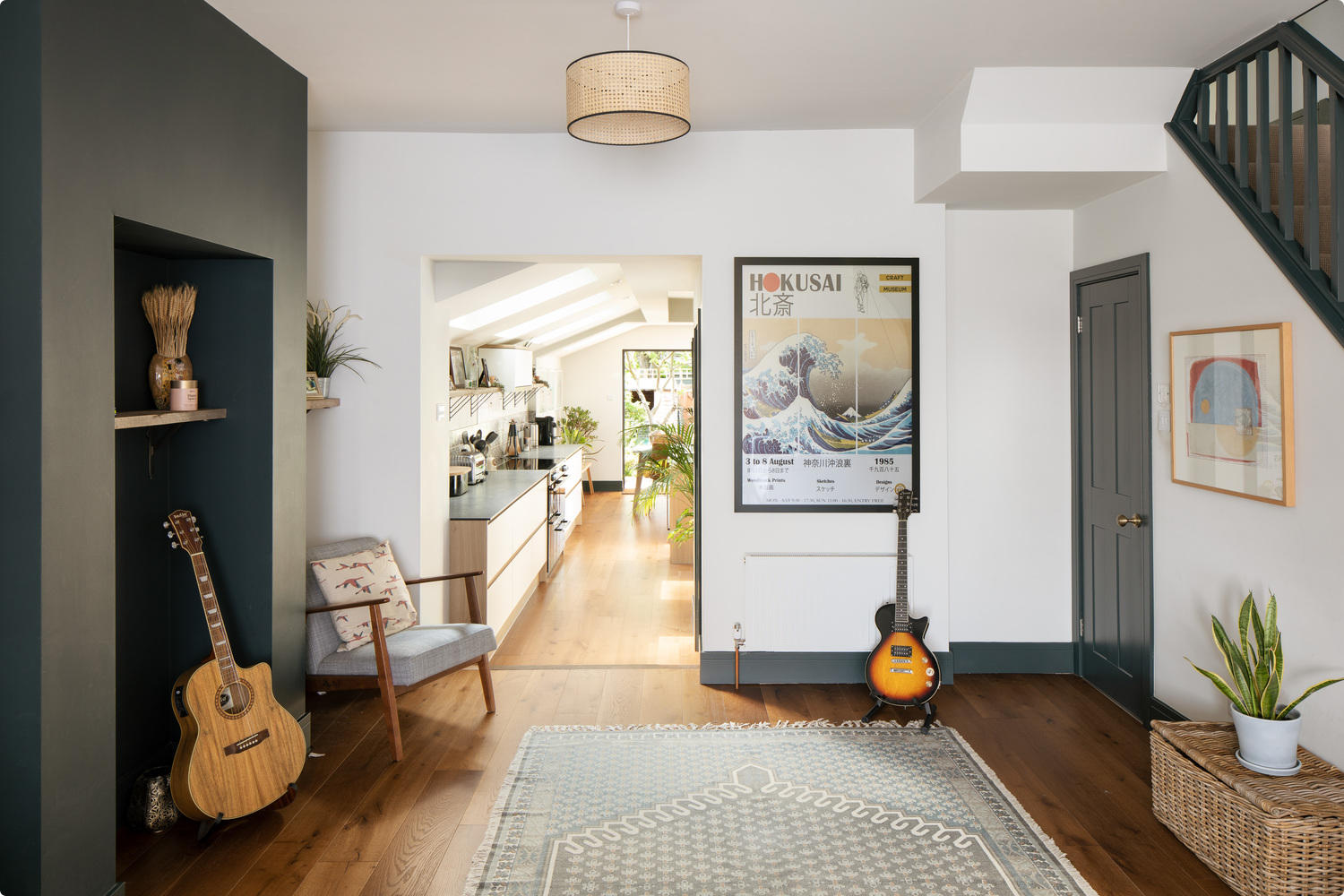 © Matt Gamble
© Matt Gamble
2. Choose a calming colour palette to craft your calm aesthetic
Soft, neutral colours can create a soothing and peaceful atmosphere in your home. Avoid bright, bold colours that may be too stimulating if you want to achieve a calm aesthetic. We spoke to Lucy Henderson, Head of Design at My Bespoke Room, who offered her expertise on choosing colourways for your home:
‘We're seeing a very clear move away from the cooler side of the colour spectrum towards warmer colours in 2023. Expect to see more paprika and terracotta walls. For those looking to adapt this trend in a softer way, opt for 'beige' over 'greige' walls for instant warmth. Soft shades of pink with grey undertones also work beautifully as a neutral.’
With Lucy’s advice in mind, select warm and neutral tones that make your space look fantastic and create a peaceful atmosphere without avoiding colour entirely.
Explore how colour has been used to create a calm aesthetic with these striking examples from real-life Resi projects.
Warm neutral tones of creams and beiges are layered to create a calm aesthetic in this inviting Croydon living room:
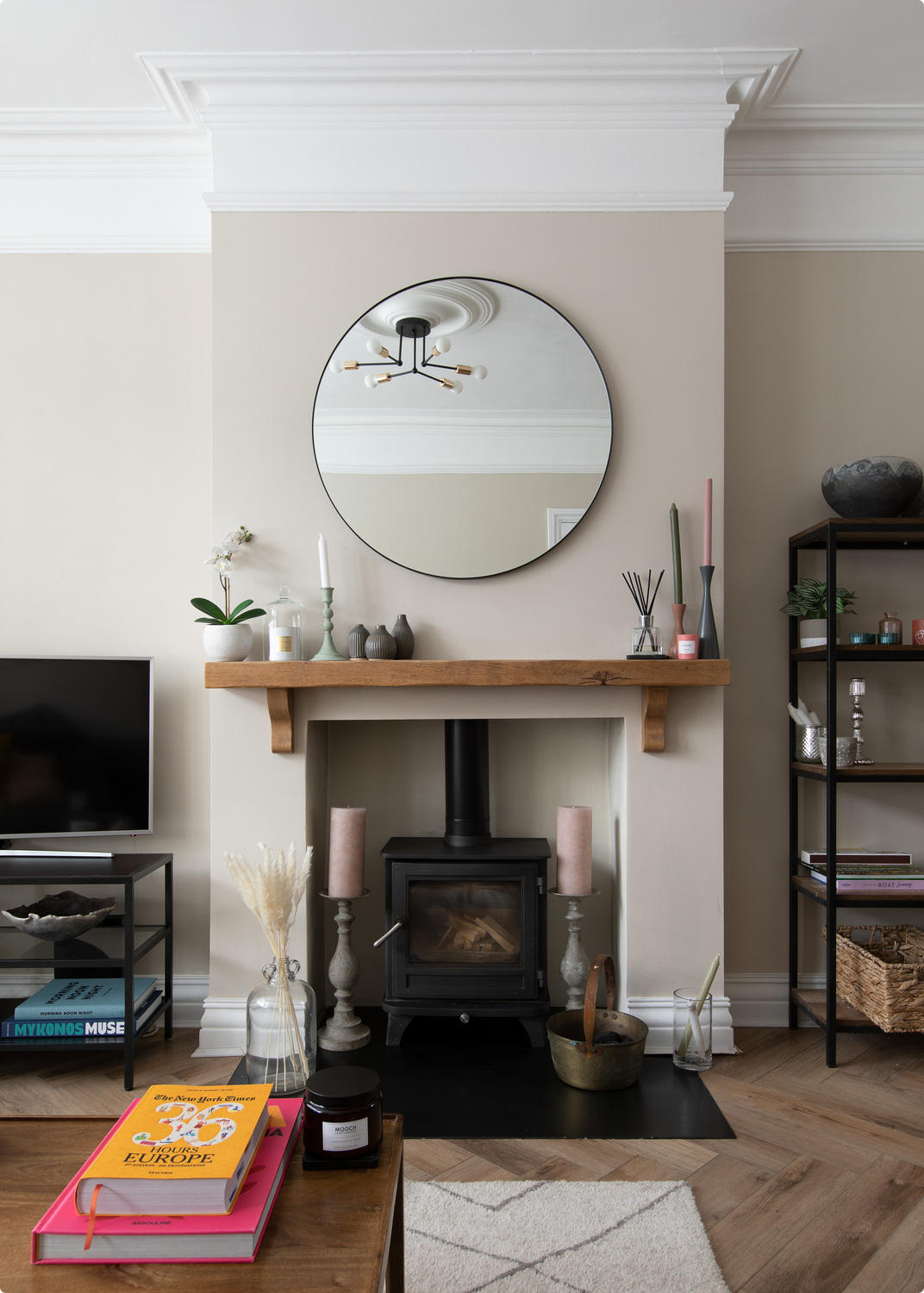
This stunning living room renovation in Islington fuses neutral white walls with a subtle streak of blue and hints of green in the artwork for an enviable calm aesthetic:
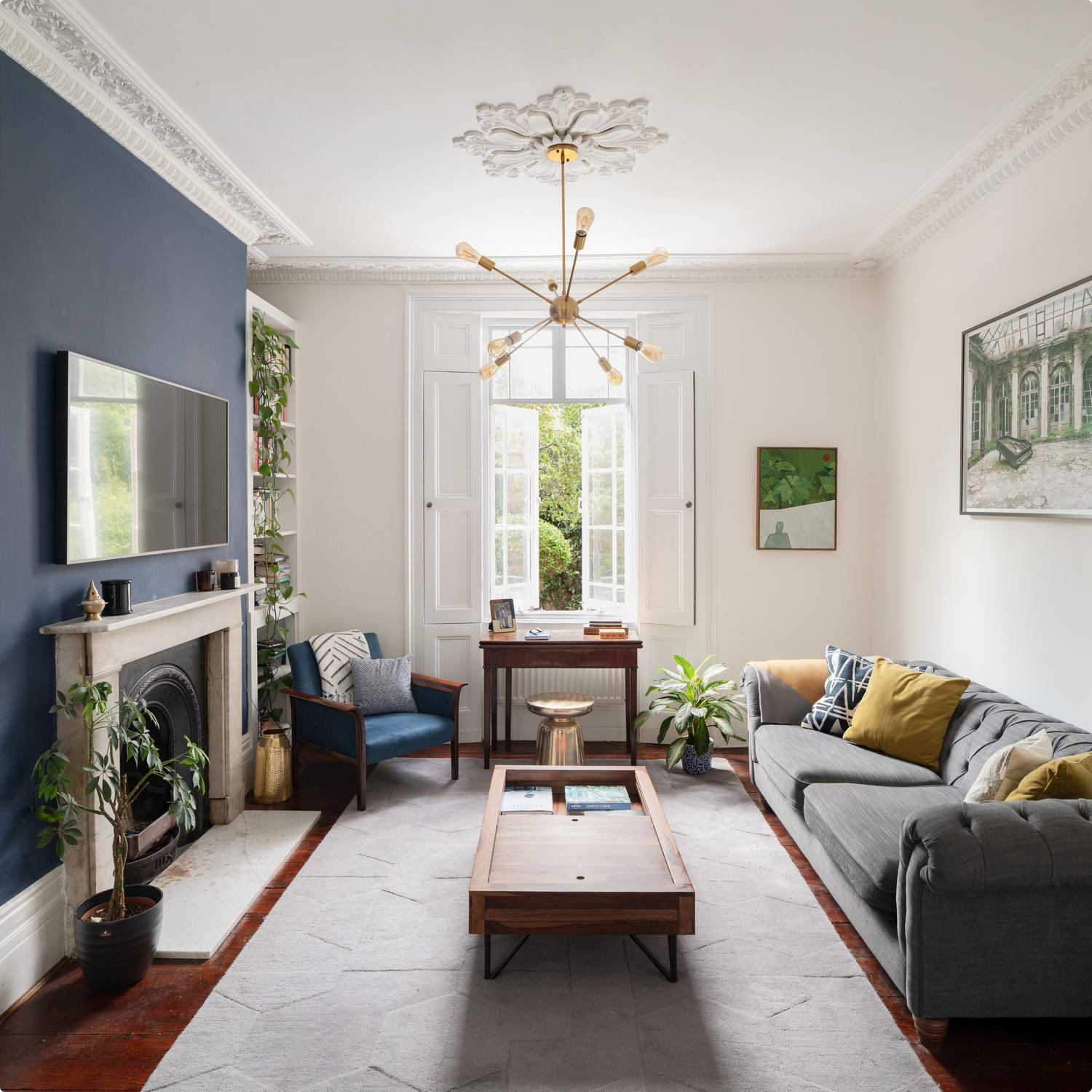
3. A touch of nature brings a touch of calm
Adding natural elements to your home’s aesthetic, such as plants, wood, and stone, can create a sense of calm and balance. Extensions such as conservatories of orangeries are beautiful ways of creating a window to the outdoors and letting in plenty of light and a natural view of greenery. Other fantastic options for strengthening the indoor-outdoor connection of your home are installing skylights and bifold doors.
However, if you’re looking to breathe new life into your space on a budget, choosing natural materials, rattan furniture and flourishing indoor plants are great ways of achieving this.
Plucked directly from the Resi project archives, below are two fantastic examples of how to bring a little more nature inside your home to create a calm aesthetic.
This beautiful kitchen in Forest Hill incorporates 3 ways of adding nature to your home: a skylight, back doors with plenty of glazing so you can see right out into the garden and plenty of indoor plants:
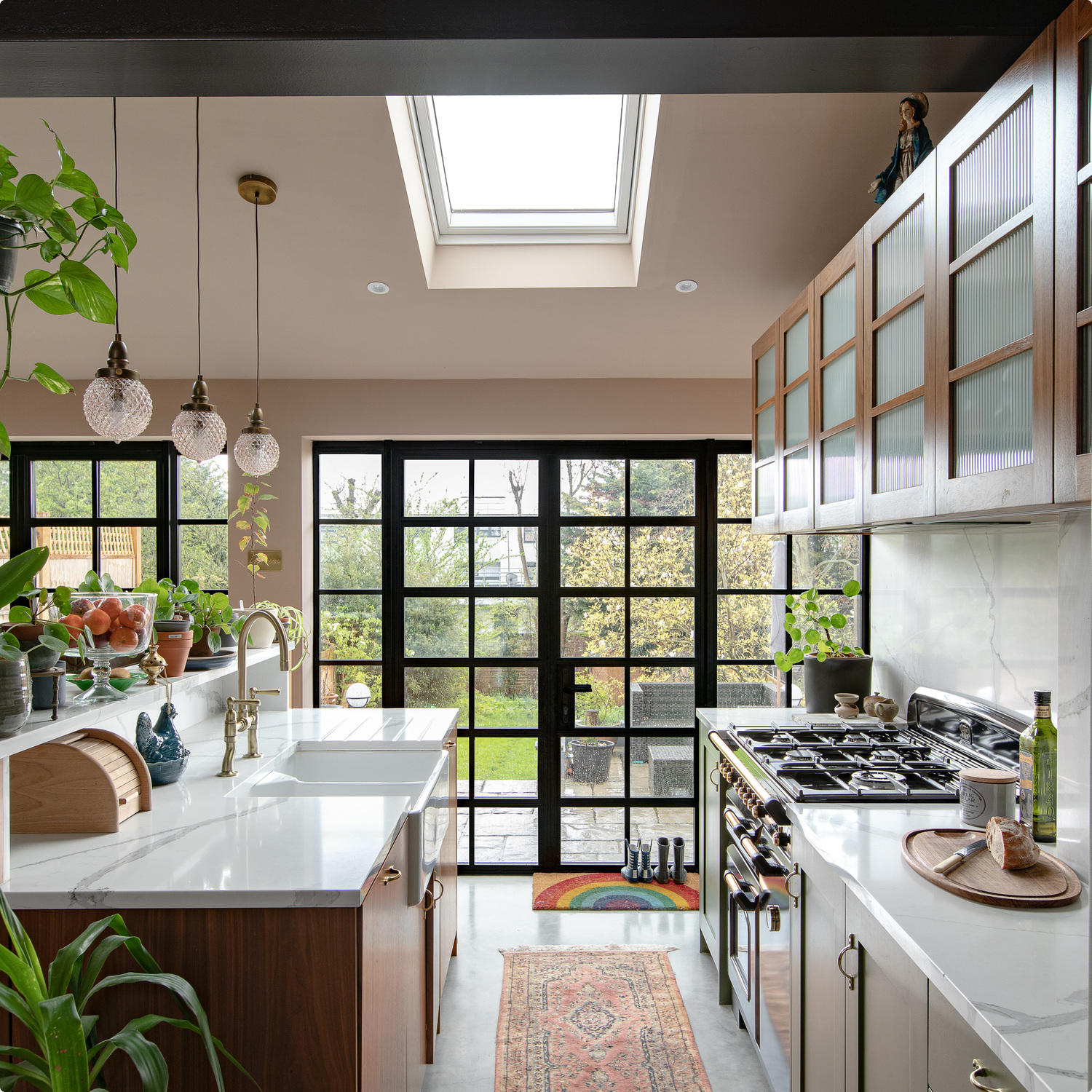 © Matt Gamble
© Matt Gamble
This cosy corner of a kitchen extension of Croydon has a varied collection of indoor plants that contributes to a calming atmosphere:
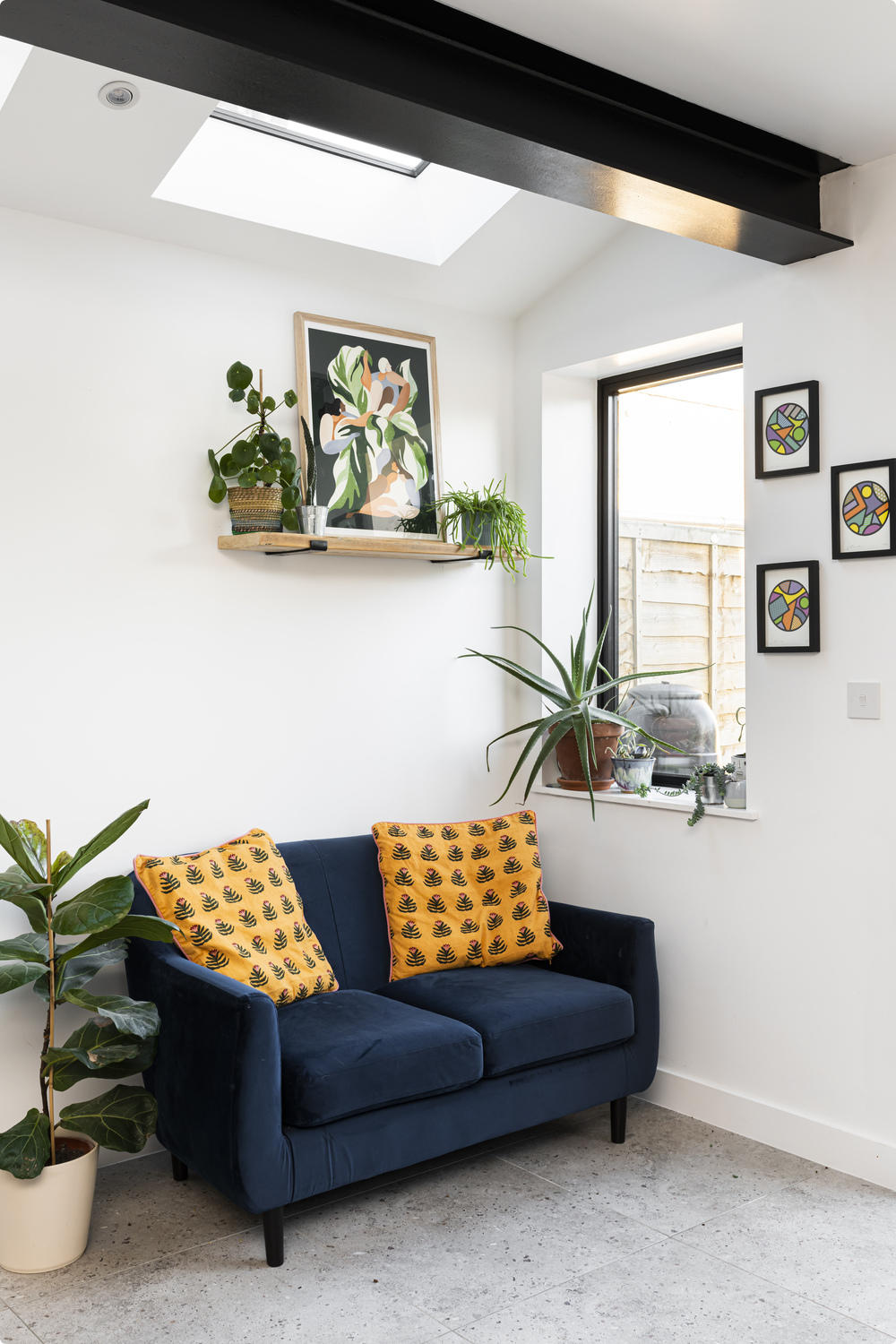 © Veronica Rodriquez
© Veronica Rodriquez
4. Make room for unwinding
Dedicate a specific area in your home to relaxation. This could be a comfortable chair in a quiet corner, a cosy reading nook or a meditation room. Whatever relaxation means to you, we recommend opting for a quiet area with natural light and a stable temperature. If you don’t have space available in your home to transform into a haven, there are plenty of extension types that could help you create it. Here’s a quick summary of a few different types of extension and how they might benefit your home:
Rear extension
If you’re looking to create more room in your home and have available space towards the back of your property, this type of extension could be hugely beneficial for you. Depending on the amount of space available and your budget constraints, a rear extension could significantly change the feel of your home and the spaciousness could positively contribute to a calm aesthetic.
Side extension
If you have available space to the side of your home (for example, an unused alleyway in a Victorian terraced house), a side extension may be the most practical way of extending your home and creating more room for unwinding.
Wraparound extension
A wraparound extension is a combination of both a side extension and a rear extension, and is otherwise known as an ‘L-shaped’ extension. Because this type of extension capitalises on both the unused space at the side and the rear of a property, the difference it can make is huge.
Loft conversion
Loft conversions are one of the most popular types of extension, and for good reason. Attics all too often go unused in homes and renovating them can have a huge impact on the amount of available space, the number of bedrooms available and the value of the property.
For more detailed information about different types of extension or to discuss ideas you have for renovating your home, book a free advice call with one of our consultants today.
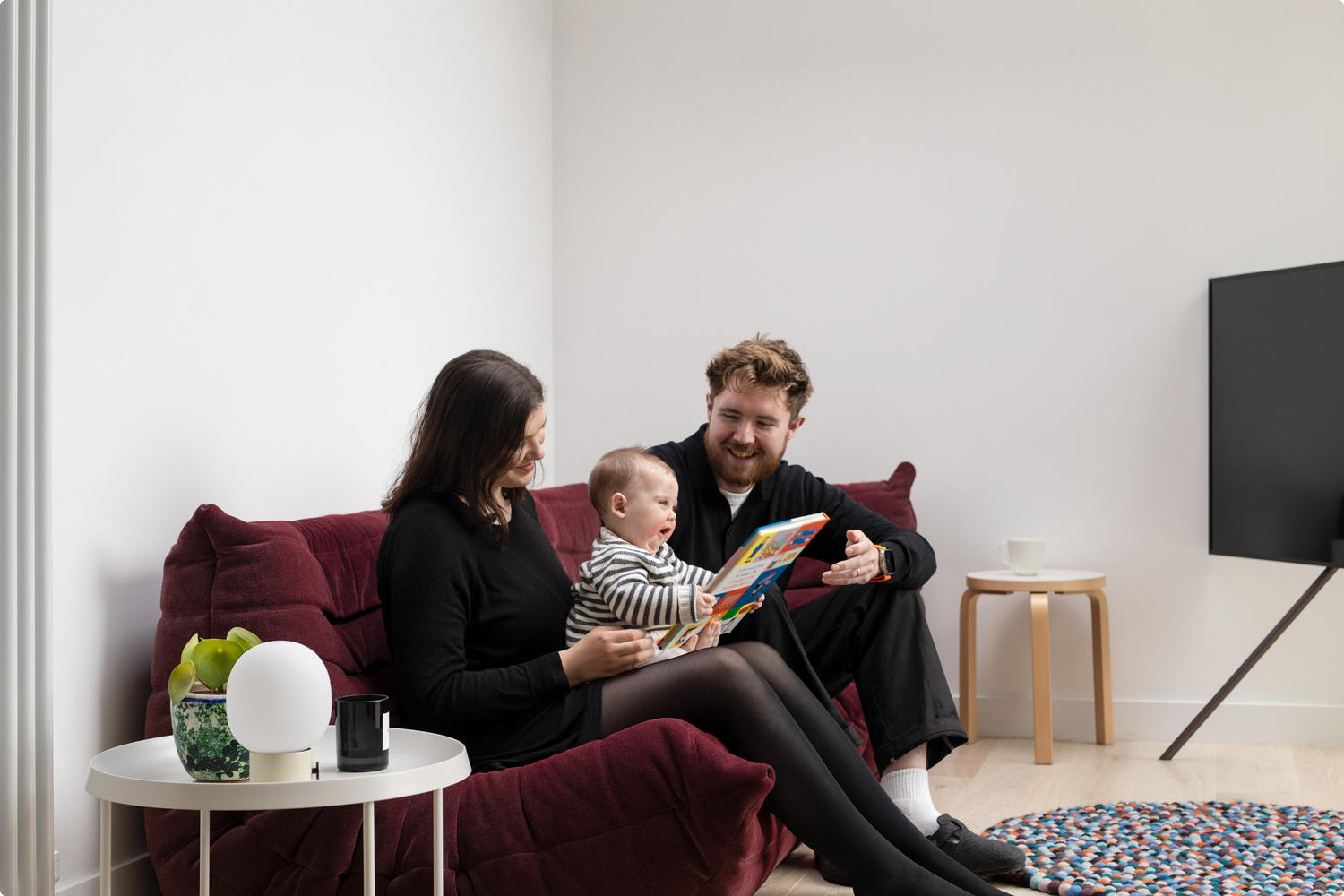
5. Choose soft lighting for a serene, calm aesthetic
Soft, warm lighting can create a cosy and peaceful atmosphere in your home. Avoid harsh, bright electric lighting, which can be overly-stimulating and even impact sleeping patterns. We recommend installing dimmer lighting that you can use intuitively to wind down throughout an evening or opting for a golden-hued table lamp as evening comes around.
6. Pick peaceful scents to influence your space
Certain scents, such as lavender, vanilla and peppermint can help create a peaceful and calming atmosphere in your home. You can use essential oils, scented candles, or reed diffusers to introduce these scents into your space.
If you’re considering getting an extension to create a more calm aesthetic in your home, book a free advice call to discuss your ideas.
 © Matt Gamble
© Matt Gamble © Matt Gamble
© Matt Gamble


 © Matt Gamble
© Matt Gamble © Veronica Rodriquez
© Veronica Rodriquez

